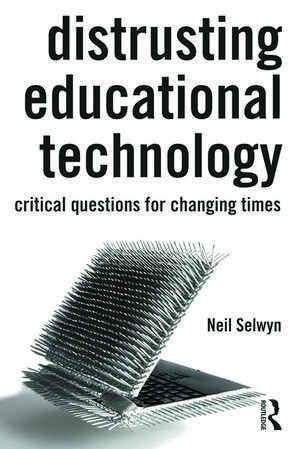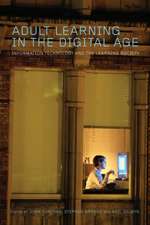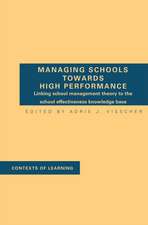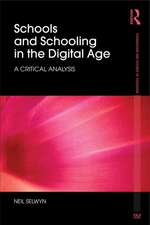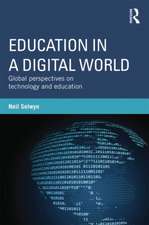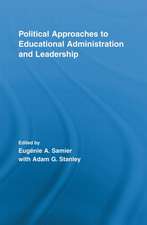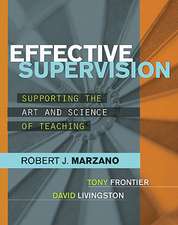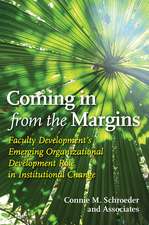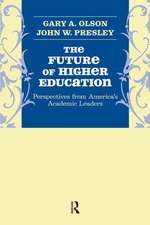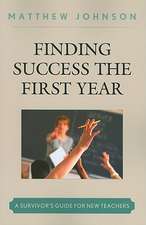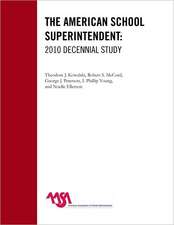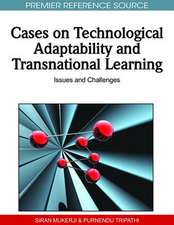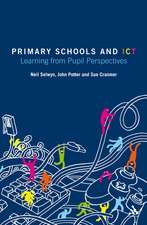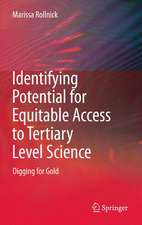Distrusting Educational Technology: Critical Questions for Changing Times
Autor Neil Selwynen Limba Engleză Paperback – 20 noi 2013
Following a wide-ranging interrogation of the ideological dimensions of educational technology, this book examines in detail specific types of digital technology in use in education today, including virtual education, ‘open’ courses, digital games, and social media. It then concludes with specific recommendations for fairer forms of educational technology. An ideal read for anyone interested in the fast-changing nature of contemporary education, Distrusting Educational Technology comprises an ambitious and much-needed critique.
| Toate formatele și edițiile | Preț | Express |
|---|---|---|
| Paperback (1) | 386.30 lei 43-57 zile | |
| Taylor & Francis – 20 noi 2013 | 386.30 lei 43-57 zile | |
| Hardback (1) | 1108.37 lei 43-57 zile | |
| Taylor & Francis – 5 dec 2013 | 1108.37 lei 43-57 zile |
Preț: 386.30 lei
Nou
Puncte Express: 579
Preț estimativ în valută:
73.94€ • 80.34$ • 62.15£
73.94€ • 80.34$ • 62.15£
Carte tipărită la comandă
Livrare economică 21 aprilie-05 mai
Preluare comenzi: 021 569.72.76
Specificații
ISBN-13: 9780415708005
ISBN-10: 0415708001
Pagini: 208
Dimensiuni: 152 x 229 x 15 mm
Greutate: 0.38 kg
Ediția:New.
Editura: Taylor & Francis
Colecția Routledge
Locul publicării:Oxford, United Kingdom
ISBN-10: 0415708001
Pagini: 208
Dimensiuni: 152 x 229 x 15 mm
Greutate: 0.38 kg
Ediția:New.
Editura: Taylor & Francis
Colecția Routledge
Locul publicării:Oxford, United Kingdom
Cuprins
Preface and acknowledgement
1 Why distrust educational technology?
2 Understanding educational technology as ideology
3 Distrusting ‘virtual’ technologies in education
4 Distrusting ‘open’ technologies in education
5 Distrusting ‘games’ technologies in education
6 Distrusting ‘social’ technologies in education
7 Educational technology – continuities, contradictions, and conflicts
8 Educational technology – is there an alternative?
References
1 Why distrust educational technology?
2 Understanding educational technology as ideology
3 Distrusting ‘virtual’ technologies in education
4 Distrusting ‘open’ technologies in education
5 Distrusting ‘games’ technologies in education
6 Distrusting ‘social’ technologies in education
7 Educational technology – continuities, contradictions, and conflicts
8 Educational technology – is there an alternative?
References
Notă biografică
Neil Selwyn is Professor of Education at Monash University, Australia.
Recenzii
"Neil Selwyn’s book is a superb analysis of the key reasons to ‘distrust’ many aspects of the use and application of technology as represented to teachers, students and educationalists. His book is not a simple or crude polemic attack directed at ‘technology’ digital or otherwise, it is in fact a work that promotes thinking and provokes reflection on many of our assumptions regarding the usefulness and application benefit for both the individual student and society of assuming that technology as such is a politically – ideologically free agent in all our lives and simply a ‘good thing’." - John Senior, Gifted Education International
“Beginning with Thomas Edison's 1913 proclamation that motion picture machines would replace books in the schools, a never-ending stream of boosters and self-styled reformers have sought to ‘revolutionize’ education through massive infusions of technology. Neil Selwyn's masterful study examines today's leading contenders – social media, gaming, open source, and others – revealing the dubious ideological, economic, and political agendas at the basis of their schemes. Clearly the best book on educational technology of this generation, it will shake the digital establishment to its core.” - Langdon Winner, author of The Whale and the Reactor and Thomas Phelan Professor of Humanities and Social Sciences, Rensselaer Polytechnic Institute, USA
"Distrusting Educational Technology is exactly the kind of book that anyone concerned with major current trends in educational reform, policy, and practice needs at this time. It illuminates crucial questions and raises important cautions that tend to be ignored as we all too often assume that a technology driven education will solve most of our problems. Neil Selwyn has much to teach us about the dangers of easy technical solutions to complex social and educational problems." - Michael W. Apple, author of Can Education Change Society? and John Bascom Professor of Curriculum and Instruction and Educational Policy Studies University of Wisconsin, Madison, USA
“Beginning with Thomas Edison's 1913 proclamation that motion picture machines would replace books in the schools, a never-ending stream of boosters and self-styled reformers have sought to ‘revolutionize’ education through massive infusions of technology. Neil Selwyn's masterful study examines today's leading contenders – social media, gaming, open source, and others – revealing the dubious ideological, economic, and political agendas at the basis of their schemes. Clearly the best book on educational technology of this generation, it will shake the digital establishment to its core.” - Langdon Winner, author of The Whale and the Reactor and Thomas Phelan Professor of Humanities and Social Sciences, Rensselaer Polytechnic Institute, USA
"Distrusting Educational Technology is exactly the kind of book that anyone concerned with major current trends in educational reform, policy, and practice needs at this time. It illuminates crucial questions and raises important cautions that tend to be ignored as we all too often assume that a technology driven education will solve most of our problems. Neil Selwyn has much to teach us about the dangers of easy technical solutions to complex social and educational problems." - Michael W. Apple, author of Can Education Change Society? and John Bascom Professor of Curriculum and Instruction and Educational Policy Studies University of Wisconsin, Madison, USA
Descriere
Distrusting Educational Technology critically explores the optimistic consensus that has arisen around the use of digital technology in education.
